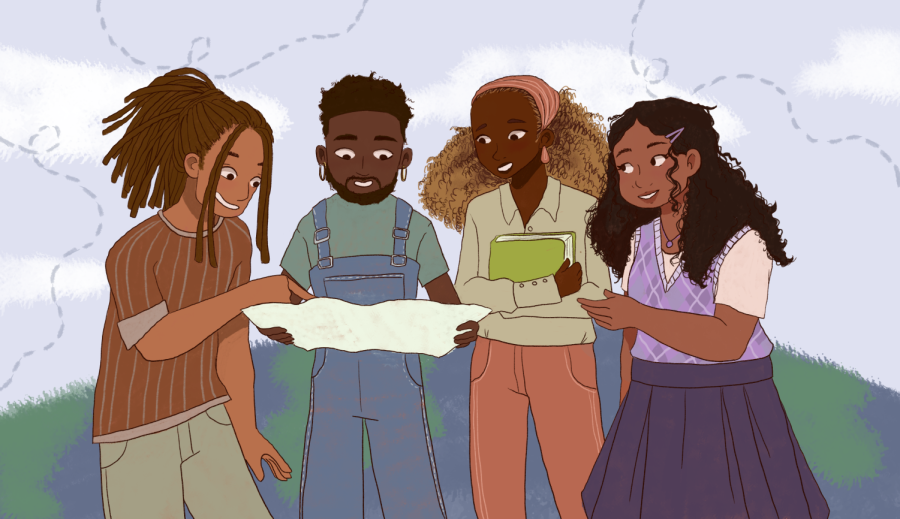Black students reflect on experiences traveling abroad over summer vacation
August 26, 2022
Lauryn Midgett floats through canals in Amsterdam. A few days later, she looks down over Paris from the top of the Eiffel Tower. She visits with family in Geneva, observes the Colosseum in Rome and eats delicious food in Florence, creating memories for an unforgettable summer.
However, Midgett said traveling throughout Europe was not what she originally romanticized. As a Black woman traveling internationally, Midgett said she was forced to stay hyper-aware of her surroundings and attuned to the social cues around her.
“When I was in Italy, it was less of aggressive microaggressions (and) more like a fetishization of Black women, (which) I felt in most of the countries I was in,” the English and African and African diaspora studies sophomore said. “It’s not much different … but (there is an) extra piece because you are somewhere where you’re not familiar.”
Psychology sophomore Whitney Nwaneri said she also experienced racism while abroad during the summer. In addition to uncomfortable stares from strangers, while interning in Singapore, Nwaneri said a woman came up to her and touched her hair.
“If you’re traveling to an Asian country, (racism is) going to be there, but it was less malicious (than in America) and more genuine curiosity,” Nwaneri said.
Nwaneri and Midgett make up two of numerous Black students who spent the summer traveling internationally. As the fall semester begins, Nwaneri and Midgett join other students as they return to campus with experiences of their treatment abroad, reflections on what they learned about themselves and ideas for where they hope to travel in the future to connect to their identity and heritage within the African diaspora.
One of those students, psychology sophomore Adramy Fall, spent his summer in Senegal. Fall visited Dakar, traveled north into Mauritania and practiced the Wolof language as he spent time with extended family.
“(My favorite part of the trip was) getting a chance to practice Wolof because I don’t get the chance to speak it that often outside of the house in America,” Fall said. “A lot of relatives of mine didn’t really expect me to be that good at speaking (Wolof), so when I would talk to them fluently, it was really surprising and a positive experience between me and them.”
Coming back from Senegal and returning to campus, Fall said he now recognizes a newfound desire to connect to his Senegalese heritage.
“Every time you visit, you’re able to connect with people, the environment or culture that relates to you,” Fall said. “(It) isn’t anything like what you have at home. You want to experience more of that and build on your human experience,” Fall said.
For Midgett, despite facing racism while traveling around Europe, she said she hopes to return and even live in France or Switzerland someday. Although, Midgett said she also hopes to visit Nigeria in the future, where she could connect to potential ancestry.
“European destinations are so romanticized, and it would be really fun to be in a place where my demographic isn’t the vast minority,” Midgett said. “On top of that, it (would be) an attempt to better understand my ancestry. Nigeria had the biggest percentage (on my ancestry test), and while those tests are not the most reliable, it is nice to think that I could trace some roots back there.”
While Nwaneri faced racism in Singapore, she said she still enjoyed valuable experiences while in the country, and it will not stop her from traveling the world. Nwaneri said she believes visiting other countries can help Black students discover more about themselves in a way they could not otherwise in the United States.
“It’s a good experience to travel abroad, specifically if you’re Black,” Nwaneri said. “America boxes you in and tells you ‘Oh, you have to be this.’ If you go abroad to another country that doesn’t have those same rules, then you will learn a lot about yourself and what you want out of life.”





